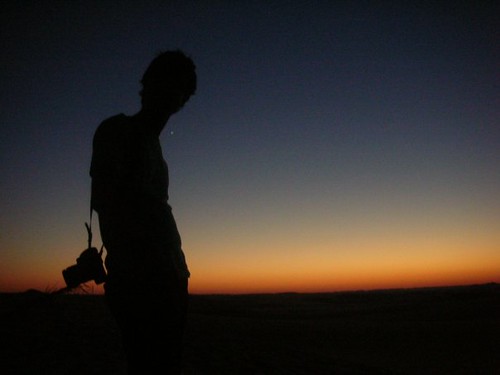I finished reading "Regarding the Pain of Others" yesterday, and it was gooood. And while i agreed with most of it, something strange happens in the last chapter that made me feel uneasy:
Part 1Towards the end of the book, Sontag gives the strong admonishment that...
"Someone who is perennially surprised that depravity exists, who continues to feel disillusioned (even incredulous) when confronted with evidence of what humans are capable of inflicting in the way of gruesome, hands-on cruelties upon other humans, has not reached moral or psychological adulthood.
No one after a certain age has the right to this kind of innocence, of superficiality, to this degree of ignorance, or amnesia." (p 114)
Is this true? Does being an 'adult' imply an obligation to not only accept, but accept with such detachment, the wickedness of humans? Does holding onto a hope that the worst that humankind has shown is an aberration really imply an 'unacceptable' naivety?
It would seem to me that this position creates a number of moral problems. If one is morally required to not only accept, but accept without flinching, the potential for gruesome depravity, then it complicates our expected response to a situation where such violence is even possible. If we cannot be 'illusioned' that anyone would refrain from the worst, how can we justify preparing for anything less? It would seem obvious that any relationship with another human is founded on a tacit agreement that such depraved acts remain 'off the table.' And if these acts are understood as beyond boundaries, then it would also follow that the necessary reaction to witnessing them is precisely that of disbelief; of disillusionment with the contract of human decency.
But this disillusionment cannot be permanent. The renewal of faith required to go on after the invariable aberration from a Contract of Decency - not just as a functioning society, but as a psychologically sane individual - is predicated not on forgiveness of the individual who errs, but on labeling the act itself as Exceptionalist.
Sontag does go on to acknowledge the incongruence between the value of remembering and the importance of forgetting. "Heartlessness and amnesia seem to go together... [but] to make peace is to forget. To reconcile, it is necessary that memory be faulty and limited." (p 115)
And in a general sense, this also presents a catch-22 of sorts. Because while Sontag admits that remembering in particulars can be counterproductive towards the cause of reconciliation, it is also necessary towards any sort of 'meaningful' remembering. If we only know that genocide is possible in the abstract, it becomes intangible, unreal. But if we remember it in the specifics, it not only prevents forgiving, it also becomes an act tied to the memory. Depravity existed here and here - and we can locate and maybe begin to explain it in 'this' historical context. So we are at an impasse.
So yeah. This is - i am well aware - a completely inappropriate comparison in terms of scale and weight, but it is my life this week:
I quit my job here in Korea on Monday. I knew that even though my contract clearly states that i can give 30 days notice at any point without penalties, my boss would probably screw me. At least, i was aware that in the history of people quiting there jobs in Korea, there are very few cases of happy endings, and quite a few cases of disaster. As a result, most people who choose to leave early turn the tables and preemptively screw their bosses by 'pulling a runner' and simply leaving in the middle of the night right after payday.
This is undoubtedly a vicious cycle. The more people 'pull runners,' the more bosses won't trust foreign teachers, and will try and abuse them, which just makes it more likely that someone will run in the first place.
I knew this before Monday, but i still didn't believe it would happen to me. Or rather, I had to be naive enough to see if it would happen to me. I was curious to see if my boss, who i respect as decent and honest, would try and take advantage of me. And of course she has.
Also, Korean kids love peanut butter sandwiches, but the thought of adding jelly makes them cringe. fyi.















